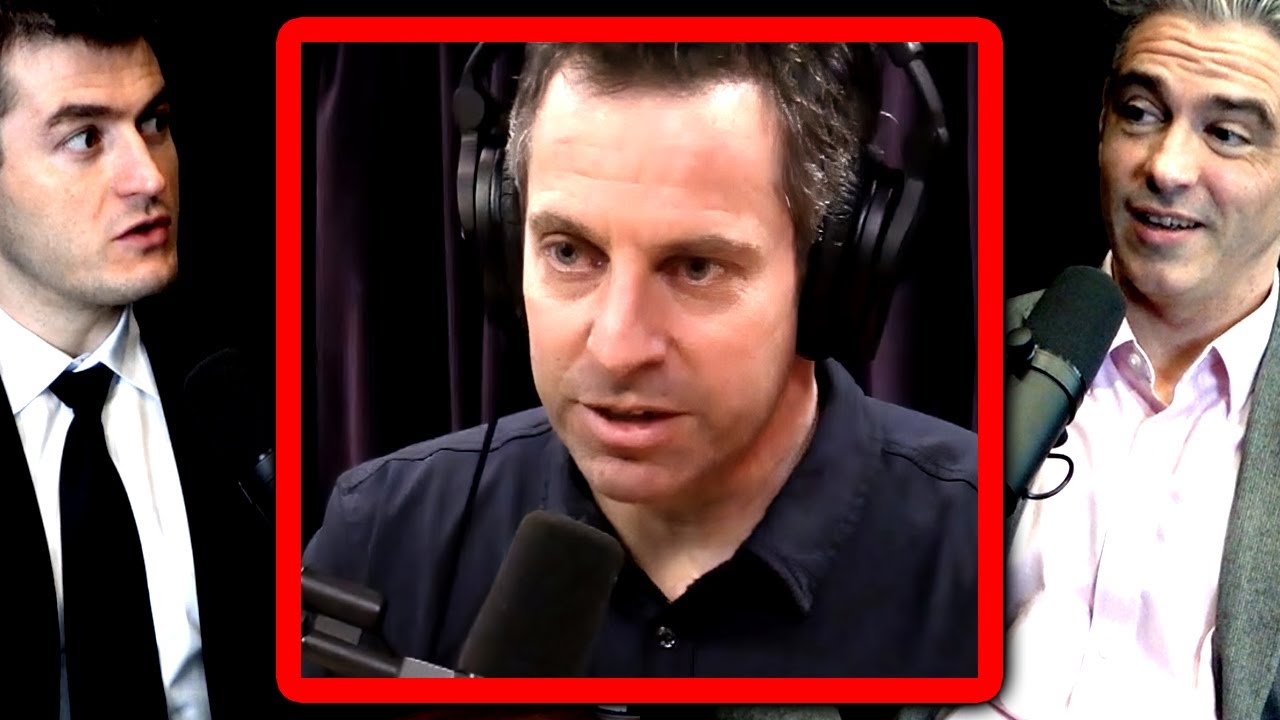Disagreement With Sam Harris About Free Will | Lee Cronin And Lex Fridman
Unleash Your Creative Genius with MuseMind: Your AI-Powered Content Creation Copilot. Try now! 🚀
In the realm of philosophy and science, the concept of free will has been a source of fascination for centuries. The debate rages on, with some arguing that it's a mere illusion, while others insist that it's a fundamental aspect of human existence. Today, we'll embark on a journey through the fascinating landscape of free will, guided by the principles of assembly theory, and we'll explore whether we're trapped in the illusion of radical freedom or if there's a glimmer of genuine choice in our lives.
Nietzsche's Limited Freedom
To kick things off, let's delve into the enigmatic world of Friedrich Nietzsche. The German philosopher, often hailed as a harbinger of radical freedom, is a central figure in our exploration. However, assembly theory tells us a different tale. Nietzsche, it seems, understood that his freedom was more constrained than he might have imagined. So, what exactly is limited freedom, and what sets it apart from the allure of radical freedom?
Limited freedom, in essence, acknowledges the constraints that surround our decisions and actions. It's the awareness that we can't simply soar to any height our imagination desires. Contrast this with radical freedom, the belief that we can transcend all boundaries and restrictions, that there are no limits to our choices. It's like the difference between playing a carefully scripted video game and an open-world adventure.
Dragon's Lair: A Lesson in Determinism
To illustrate this concept, imagine the classic video game "Dragon's Lair." In this game, your choices may seem boundless at first glance. However, beneath the surface, it's a deception. All the animations and outcomes are pre-recorded on a disc, and your "choices" are simply predetermined timings of joystick flicks.
Now, this revelation doesn't mean free will is entirely illusory, but rather that it operates within a set framework. Just as in "Dragon's Lair," we each have trajectories we can follow, and limited freedom lets us navigate within those constraints.
The Enigma of Free Will
So, what's the connection between assembly theory and free will? Assembly theory provides a unique lens through which we can examine the origin of that tiny fraction of freedom we believe we possess. As conscious beings, we make choices based on a complex interplay between our conscious and unconscious minds, influenced by our past experiences, interactions with others, and the whims of fate. It's this fusion of factors that shapes our decisions.
Sam Harris, a prominent thinker on this subject, argues that our conscious minds lack free will, effectively floating like a leaf on a river. However, our unconscious minds still hold the reins. The allure of free will may reside in our ability to explore the state space of possibilities, making decisions despite the constraints we face.
The Paradox of Radical Freedom Within Limited Freedom
Here's where things get intriguing: if we genuinely accept that free will is an illusion, it paradoxically grants us radical freedom. Once we grasp that the choices are already made, we can revel in the wild and unpredictable nature of life, knowing that we can't make a "wrong" choice.
So, when we navigate our own path through the vast landscape of life, we are, in fact, predictably unpredictable. Our choices are shaped by the constraints of our past, yet within those bounds, we still find space for spontaneity.
In this cosmic dance, perhaps there's a connection between the emergence of life, intelligence, and consciousness. Each is a manifestation of the universal principle of selection, driven by models, memory, and the ever-present quest for novelty.
The question of free will is not merely a philosophical or scientific puzzle; it's a fundamental exploration of our place in the universe. And as we peel back the layers, we uncover the beauty of our existence—where even in the illusion of limited freedom, we find the paradoxical allure of radical freedom.
So, whether you're on a quest to unlock the mysteries of free will or merely contemplating the profound nature of existence, remember that within the constraints of your reality, you possess the power to make choices, explore, and, in the end, embrace the unpredictable beauty of your journey.

Related Recaps
- ESCAPE The PENNYWISE KILLER MAZE In GTA 5
- Don't Need Your Love - HRVY & NCT DREAM (Unplugged Piano Version)
- Beyond Portland: Unique Fun Facts That Will Make You Fall in Love With Oregon!
- điều gì khiến em confused? - Andrewng x Finn (Lyrics Video)
- BREAKING NEWS - NasDem Tanggapi Penetapan Tersangka Johnny G Plate